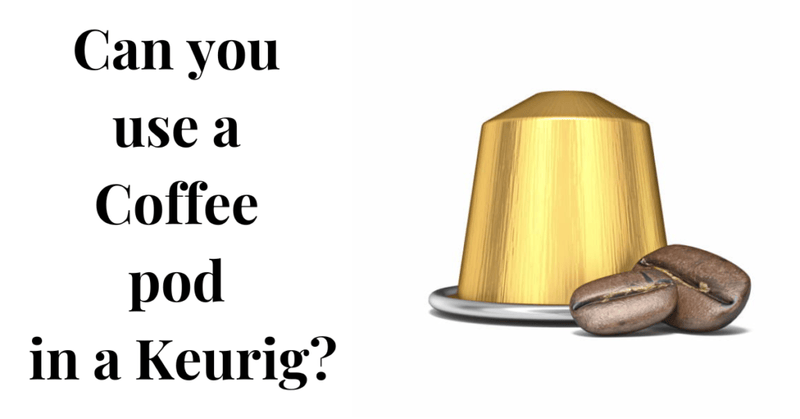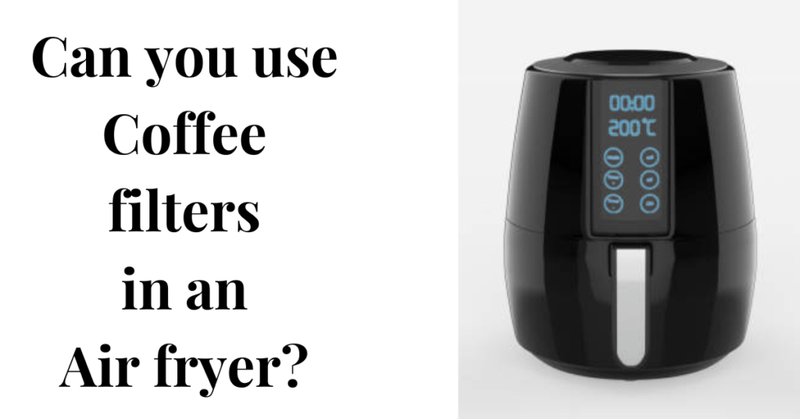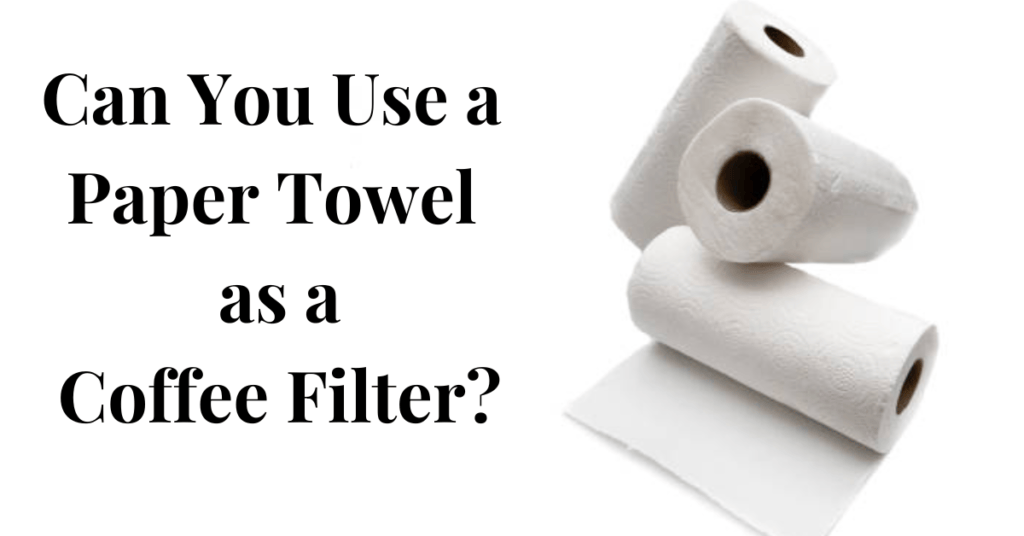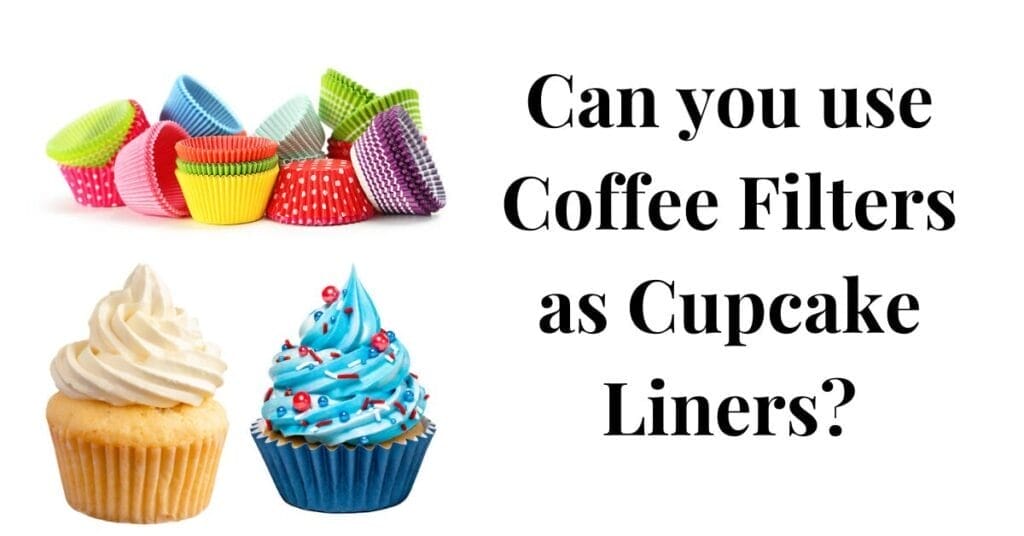Bleached paper filters may release dioxin, so unbleached options are often preferred. When using a coffee machine without a filter, taste and texture can change. Exploring coffee filter alternatives, such as metal filters, supports cleaner brewing while retaining antioxidants that benefit digestion and kidney health.
As an affiliate site, we are associated with the amazon. We might receive a commission when you use links or recommendations on our website to make qualified purchases. The cost you pay for the goods or services is unaffected by this.
Table of Contents
Can you use a Coffee Machine without a filter? What is a filter?

A filter, in the context of coffee brewing, is a device or material used to separate coffee grounds from the brewed coffee liquid. Filters come in forms such as paper, mesh, metal, or cloth, trapping grounds while allowing liquid to pass through. Interestingly, a coffee filter in a fryer is sometimes used to absorb excess oil and reduce mess during cooking.
Filters play a crucial role in refining the taste and texture of brewed coffee by removing unwanted particles and oils from the final beverage. They are commonly used in drip coffee makers, pour-over setups, espresso machines, and other brewing methods to ensure a clean and flavorful cup of coffee.
Yes, you can use a coffee machine without a filter. However, the method may vary depending on the type of coffee machine you have and your preferences for brewing coffee.
- Espresso Machines: Many espresso machines use a filter basket to hold the coffee grounds. However, some higher-end models employ a pressurised system that doesn’t require a traditional filter. Instead, these machines rely on pressure to extract flavour from the grounds. However, some espresso purists argue that using a proper filter (like a portafilter) ensures better extraction and flavour consistency.
- French Press: A French press is a manual coffee brewing device that doesn’t use a paper or mesh filter. Instead, it relies on a metal mesh plunger to separate the grounds from the brewed coffee. This method allows for a full immersion brewing process, resulting in a rich and full-bodied cup of coffee.
- Drip Coffee Makers: While drip coffee makers typically use paper filters to strain the grounds, it’s possible to brew coffee without a filter in certain models. Some drip machines have a built-in mesh filter that can be used without paper filters. Additionally, some coffee enthusiasts prefer using a permanent metal mesh filter in their drip machines instead of disposable paper filters for environmental reasons.
- Cold Brew: Cold brew coffee is made by steeping coarsely ground coffee beans in cold water for an extended period, usually 12-24 hours. This method doesn’t require a filter during the brewing process. After steeping, the coffee is generally strained through a fine-mesh sieve or a cloth filter to remove the grounds. Still, the initial brewing doesn’t involve a filter.
While using a coffee machine without a filter provides flexibility and alternative brewing methods, it’s essential to consider the potential impact on flavour, sediment, and ease of cleanup. Experimenting with different techniques can lead to discovering new and exciting ways to enjoy your coffee.
Drinking coffee is linked to a reduced risk of chronic kidney disease (CKD) development and improved kidney function, reducing the likelihood of protein loss in urine. Studies have not demonstrated that consuming 3-4 cups of coffee daily raises the risk of kidney disease or accelerates kidney function decline.
Nonetheless, it’s wise to moderate coffee intake. Individuals with difficulties controlling blood pressure should particularly limit their consumption to less than three cups per day. For individuals with liver conditions, consuming coffee should generally be safe.
There’s evidence suggesting it might even slow down the progression of liver disease in certain cases. Studies indicate that individuals who drink coffee are less likely to succumb to liver disease or develop cirrhosis.
Why is a water filter necessary for my coffee machine?

Using a water filter for your coffee machine offers several benefits that can enhance the taste of your coffee and extend its lifespan. Here’s why you might need a water filter:
- Improved Taste: The quality of water directly affects the taste of brewed coffee. Tap water often contains minerals, chemicals, or impurities that can impart off-flavours or bitterness to your coffee. A water filter removes these impurities, resulting in cleaner, fresher-tasting coffee with more distinct flavours and aromas.
- Reduced Scaling: Hard water, which contains high levels of minerals like calcium and magnesium, can lead to scale buildup in your coffee machine over time. Scale accumulation can clog the internal components of the machine, such as the heating element and water lines, affecting performance and potentially causing damage. A water filter helps reduce mineral content in the water, minimising scale buildup and extending the lifespan of your coffee machine.
- Protection for Your Investment: Coffee machines can be significant investments, and proper maintenance is essential to ensure their longevity and performance. Using a water filter helps protect your investment by reducing the risk of scale-related issues and the need for costly repairs or replacements due to scale buildup.
- Consistency: Consistency is key to brewing delicious coffee. By using filtered water with consistent mineral content, you can achieve more predictable and repeatable results in terms of flavour, aroma, and brewing parameters. This consistency allows you to fine-tune your brewing process and dial in your preferred coffee profile with greater precision.
- Health Benefits: In addition to improving the taste of your coffee, a water filter can also provide health benefits by removing potentially harmful contaminants from your drinking water. While most tap water in developed countries is safe to drink, additional filtration can offer peace of mind, especially in areas with known water quality issues or concerns.
In summary, a water filter for your coffee machine is essential for enhancing the taste of your coffee, reducing scaling and maintenance requirements, protecting your investment, ensuring consistency in brewing, and potentially providing health benefits.
Investing in a quality water filter can elevate your coffee brewing experience and help you enjoy delicious, flavorful coffee for years to come.
What are water filters, and do coffee shops use water filters?
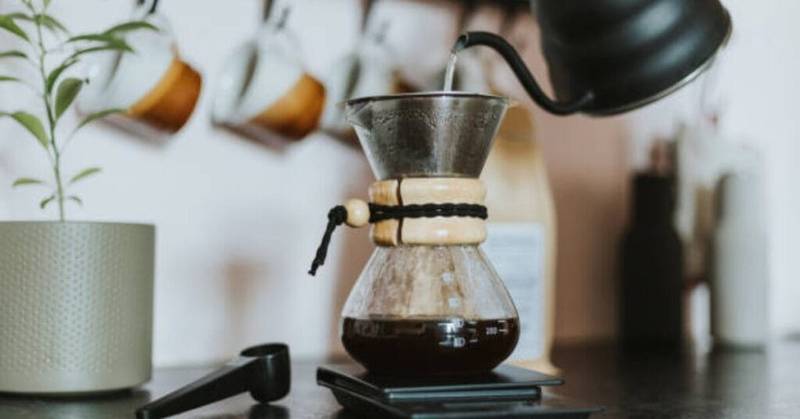
Water filters are contraptions or setups crafted to eliminate impurities, pollutants, or undesirable substances from water, enhancing its suitability for drinking, cooking, and other applications. A range of water filters exists, encompassing:
- Activated Carbon Filters: These filters use activated carbon or charcoal to absorb and trap impurities such as chlorine, volatile organic compounds (VOCs), and unpleasant odours and tastes.
- Reverse Osmosis Filters: Reverse osmosis filters use a semipermeable membrane to remove contaminants, particles, and dissolved solids from water, producing purified water with minimal impurities.
- Ion Exchange Filters: Ion exchange filters remove minerals like calcium and magnesium from water by exchanging them with sodium ions, reducing water hardness and preventing scale buildup.
- UV Filters: UV filters use ultraviolet light to kill bacteria, viruses, and other microorganisms present in water, providing additional disinfection and purification.
- Sediment Filters: Sediment filters capture larger particles and sediments suspended in water, such as sand, dirt, and rust, preventing them from reaching downstream water treatment systems.
Coffee shops commonly use water filters in their coffee brewing equipment to ensure the quality and consistency of their coffee. Here’s why coffee shops use water filters:
- Improved Taste: Water quality significantly impacts the taste and flavour of brewed coffee. Using filtered water with reduced impurities and contaminants helps produce cleaner, fresher-tasting coffee with more pronounced flavours and aromas.
- Protection of Equipment: Coffee brewing equipment, such as espresso machines, drip brewers, and espresso grinders, is susceptible to scale buildup and damage caused by minerals in water. Water filters help reduce mineral content and scale buildup, prolonging the lifespan of equipment and minimising maintenance requirements.
- Consistency: Consistency is crucial in the coffee industry, especially for speciality coffee shops aiming to deliver high-quality coffee to customers. By using water filters, coffee shops can achieve more consistent brewing results, ensuring that each cup of coffee meets their standards of excellence.
- Customer Satisfaction: Providing delicious and consistently great-tasting coffee is essential for customer satisfaction and loyalty. Using water filters to optimise water quality contributes to a better overall coffee experience for customers, enhancing their enjoyment and perception of the coffee served.
In summary, water filters are essential tools for coffee shops seeking to brew exceptional coffee consistently while protecting their equipment and ensuring customer satisfaction. By investing in water filtration systems, coffee shops can elevate the quality of their coffee and distinguish themselves in a competitive market.
The best water for good-quality coffee

The best water for good-quality coffee is typically clean, fresh, and free from impurities that can negatively affect the taste and aroma of the brewed coffee. Here are some characteristics of water that contribute to optimal coffee brewing:
- Balanced Mineral Content: Water with a balanced mineral content, including calcium and magnesium, is ideal for brewing coffee. These minerals contribute to the extraction of flavour compounds from coffee grounds and enhance the overall taste and body of the brewed coffee.
- Neutral pH: Water with a neutral pH level, around 7, is preferable for coffee brewing. Extremely high or low pH levels can affect the extraction process and alter the coffee’s flavour profile.
- Low Chlorine and Impurities: Water with low levels of chlorine and other impurities, such as sediment and organic compounds, is essential for producing clean and flavorful coffee. Chlorine can impart off-flavours and odours to coffee. At the same time, impurities can interfere with the brewing process and affect the taste.
- Proper Temperature: The temperature of the water used for brewing coffee is critical. Ideally, water should be heated to between 195°F and 205°F (90°C to 96°C) for optimal extraction of flavour compounds from the coffee grounds. Water that is too hot or too cold can result in over-extraction or under-extraction, respectively, leading to unbalanced or weak-tasting coffee.
- Freshness: Using fresh, recently drawn water ensures that it is free from staleness or off-flavours that can develop in stagnant water. Water that has been sitting in a reservoir for an extended period may pick up odours or tastes from the environment, affecting the quality of the brewed coffee.
To achieve the best water for brewing good-quality coffee, many coffee enthusiasts and professionals use filtered or purified water that meets the above criteria.
Water filtration systems, such as activated carbon or reverse osmosis, help remove impurities and balance minerals for cleaner, more consistent coffee. While proper filtration is ideal, some people experiment with a paper towel as a filter in a pinch, though it cannot replace the effectiveness of dedicated water or coffee filters.
What is a coffee machine?
A coffee machine, also known as a coffee maker or coffee brewer, is a device designed to brew coffee by heating water and passing it through coffee grounds to extract flavour and aroma. Coffee machines come in various types and designs, catering to different brewing preferences and requirements. Common types of coffee machines include:
- Drip Coffee Maker: This type of coffee machine brews coffee by dripping hot water over coffee grounds held in a paper or mesh filter.
- Espresso Machine: Espresso machines brew concentrated coffee by forcing pressurised hot water through finely ground coffee beans. They come in different varieties, including manual, semi-automatic, and automatic machines.
- French Press: A French press is a manual coffee brewing device consisting of a glass or stainless steel container and a plunger with a mesh filter.
- Pour-Over Brewer: Pour-over coffee makers involve manually pouring hot water over coffee grounds in a filter. The water drips through the grounds and filters into a carafe or mug below, resulting in a clean and flavorful cup of coffee.
- Single-Serve Coffee Maker: Single-serve coffee machines brew one cup of coffee at a time using pre-packaged coffee pods or capsules.
Coffee machines vary in complexity, brewing method, capacity, and features such as programmability, temperature control, and frothing capabilities for making speciality coffee drinks like cappuccinos and lattes. Whether for home or commercial use, coffee machines are essential appliances for coffee lovers to enjoy freshly brewed coffee at their convenience.
Why do people use coffee machines?

People use coffee machines for various reasons, including convenience, consistency in brewing, customisation of coffee strength and flavour, and the ability to make speciality coffee drinks like espresso-based beverages. Coffee machines offer an easy and efficient way to brew coffee at home or in a commercial setting, saving time and effort compared to manual brewing methods.
Additionally, coffee machines come in different types and styles to cater to individual preferences and brewing needs. Regarding safety, coffee machines are generally safe to use when operated according to the manufacturer’s instructions. However, like any electrical appliance, improper use or maintenance can pose risks, such as electrical hazards or burns from hot surfaces.
It’s essential to follow safety guidelines, such as keeping the machine clean, avoiding overfilling water reservoirs, and unplugging the machine when not in use.
Determining the best coffee machine depends on factors such as brewing preferences, budget, and desired features. Here are a few highly-rated coffee machines along with their key features:
Breville BES870XL Barista Express Espresso Machine:
- Features:
- Integrated conical burr grinder with dose control for freshly ground coffee.
- Pre-infusion function gradually increases water pressure to enhance flavour extraction.
- Stainless steel construction with a compact footprint.
Technivorm Moccamaster KBG Coffee Brewer:
- Features:
- Brews a full carafe of coffee in six minutes.
- Precise temperature control (196-205°F) for optimal coffee extraction.
- The copper heating element ensures water stays at the ideal temperature throughout the brewing process.
- Durable metal housing with a drip-stop brew basket for easy pouring.
- Automatic shut-off feature for safety and energy conservation.
Keurig K-Elite Single-Serve Coffee Maker:
- Features:
- Brews multiple cup sizes (4, 6, 8, 10, and 12 oz) with the touch of a button.
- A large 75 oz removable water reservoir allows for fewer refills.
- A strong Brew button increases coffee strength and intensity.
- Programmable auto-on feature for brewing coffee at a specific time.
- Compatible with K-Cup pods for convenient single-serve brewing.
These coffee machines represent a range of options catering to different brewing preferences and budgets. When choosing a coffee machine, it’s essential to consider factors such as brewing capacity, ease of use, maintenance requirements, and additional features that enhance the coffee brewing experience.
Can you use a coffee pod without a machine?

Yes, it’s possible to use a coffee pod without a machine, although the process requires some creativity and manual effort. Here’s how you can do it:
Hot Water Method:
- Place the coffee pod in a heat-resistant cup or mug.
- Boil water separately using a kettle or stovetop pot.
- Pour the hot water directly over the coffee pod, ensuring it’s fully immersed.
- Let the pod steep for a few minutes to extract the flavour.
- Use a spoon to press down gently on the pod to encourage extraction.
- Once brewed to your desired strength, remove the pod and discard it.
- Optionally, add milk, sugar, or other flavourings to your brewed coffee.
DIY Pour-Over Method:
- Cut open the coffee pod and pour the contents into a coffee filter or fine mesh sieve.
- Place the filter or sieve over a cup or carafe.
- Boil water separately and pour it slowly over the coffee grounds, allowing it to drip through the filter into the cup.
- Stir the coffee grounds and water gently to ensure even extraction.
- Let the coffee drip completely, then discard the grounds and filter.
- Enjoy your freshly brewed coffee.
While these methods allow you to use coffee pods without a machine, they may produce a different level of convenience or consistency than using a dedicated pod coffee maker. Additionally, be cautious when handling hot water to avoid burns or spills. Experiment with different techniques to find the method that works best for you in manually brewing coffee pods.
Can tap water be used in a coffee machine?
Yes, tap water can generally be used in a coffee machine. Still, the quality of the water can affect the taste and lifespan of the machine. Here are the details:
- Water Quality: Tap water quality varies depending on location. It may contain minerals, chemicals, or impurities that can affect the taste of brewed coffee. Hard water, which contains high levels of minerals like calcium and magnesium, can lead to scale buildup in the machine over time.
- Filtering: Using filtered or purified water can improve the taste of coffee and prolong the life of the coffee machine. Water filters or filtration pitchers can remove impurities and reduce the mineral content in tap water, resulting in better-tasting coffee and less scale buildup in the machine.
- Scale Buildup: Minerals present in tap water can accumulate in the internal components of the coffee machine, such as the heating element and water reservoir. This buildup, known as scale, can interfere with the machine’s performance and may require regular descaling to maintain optimal functionality.
- Maintenance: Regardless of the type of water used, it’s essential to follow the manufacturer’s instructions for cleaning and maintenance. Regular descaling with a descaling solution or vinegar can help remove scale buildup and prolong the life of the coffee machine.
- Considerations: If tap water quality is poor or if you notice a significant buildup of scale in your coffee machine, consider using filtered or bottled water instead. Alternatively, some coffee machines come with built-in water filtration systems to improve water quality and reduce scale buildup.
In summary, tap water can be used in a coffee machine, but its quality can impact the taste of brewed coffee and the machine’s longevity. Using filtered or purified water and regular maintenance can help ensure optimal performance and delicious coffee.
Best Coffee Filter Substitutes
Here are some popular coffee filter substitutes, along with their descriptions, qualities, and features:
Reusable Mesh Filters:
- Description: Made of fine mesh stainless steel or nylon material, reusable mesh filters allow water to pass through while trapping coffee grounds.
- Quality: Durable and long-lasting, reusable mesh filters are eco-friendly alternatives to disposable paper filters.
- Features: Easy to clean, dishwasher-safe, and compatible with various coffee brewing methods such as pour-over, drip, and French press.
Cloth Filters:
- Description: Cloth filters, often made of cotton or hemp, provide a traditional brewing experience by allowing water to flow through while retaining coffee grounds.
- Quality: Cloth filters offer a smooth and clean extraction, producing a full-bodied and sediment-free cup of coffee.
- Features: Cloth filters are favoured for their sustainability and versatility. They are reusable, washable, and customizable to fit different brewing devices.
Metal Mesh Filters:
- Description: Metal mesh filters, typically made of stainless steel, feature fine perforations that prevent coffee grounds from passing through while allowing oils and flavours to infuse into the brewed coffee.
- Quality: Sturdy and resilient, metal mesh filters offer consistent brewing results and are resistant to tearing or degradation over time.
- Features: Easy to use and maintain, metal mesh filters are compatible with various coffee makers, including drip machines and single-serve brewers.
Paper Towels or Napkins:
- Description: In a pinch, paper towels or napkins can be used as makeshift coffee filters by folding or cutting them to fit the brewing device.
- Quality: While not as effective as dedicated coffee filters, paper towels can still strain out coffee grounds to some extent, producing a passable cup of coffee.
- Features: Widely available and inexpensive, paper towels offer a convenient solution for emergency coffee brewing situations. However, due to their porous nature, they may result in a slightly weaker brew.
Cheesecloth:
- Description: Cheesecloth is a loose-woven cotton fabric that can be folded or layered to create a makeshift coffee filter.
- Quality: Cheesecloth provides decent filtration, though it may allow some fine particles to pass through, resulting in a slightly gritty texture in the brewed coffee.
- Features: Cheesecloth is easily customizable and available in different grades of thickness. It can be used for various brewing methods, including cold brew and straining homemade nut milk.
When using coffee filter substitutes, it’s essential to adjust brewing parameters and techniques accordingly to achieve the desired flavour and consistency in your coffee. Additionally, regular cleaning and maintenance of reusable filters are crucial for optimal performance and longevity.
What type of water filtration system is best suited for my coffee machine?
The type of water filtration system you need for your coffee machine depends on factors such as the quality of your tap water, the specific requirements of your coffee machine, and your preferences for water quality. Here are several options to consider:
- Activated Carbon Filters: Activated carbon filters effectively remove chlorine, sediment, and some organic compounds from water, improving its taste and odour. They are relatively affordable and can be installed in line with your coffee machine’s water supply or used in a pitcher or faucet attachment.
- Reverse Osmosis Systems: Reverse osmosis systems remove a wide range of impurities from water, including minerals, chemicals, and contaminants. These systems produce purified water with low mineral content, which can be beneficial for preventing scale buildup in coffee machines. However, they can be more expensive and require installation under the sink or at the point of use.
- Ion Exchange Filters: Ion exchange filters are effective at reducing water hardness by exchanging calcium and magnesium ions with sodium or potassium ions.
- UV Filters: UV filters use ultraviolet light to disinfect water by killing bacteria, viruses, and other microorganisms. While UV filters do not remove minerals or impurities, they can provide an additional layer of protection against microbial contamination in water used for coffee brewing.
- Multi-Stage Filtration Systems: Some water filtration systems combine multiple filtration methods, such as activated carbon, reverse osmosis, and ion exchange, to provide comprehensive water treatment. These systems offer versatility and customizable filtration options to meet specific water quality needs.
Before choosing a water filtration system for your coffee machine, consider testing your tap water to determine its quality and any potential contaminants. You may also consult your coffee machine’s manufacturer or user manual for recommendations on water quality and filtration requirements.
Ultimately, selecting the right water filtration system can help optimise the taste, performance, and longevity of your coffee machine while ensuring delicious, high-quality coffee with every brew.
Can you use a Coffee Machine without a filter
Is it okay to not use a Coffee filter?
Yes, there are numerous inventive methods for brewing coffee without a traditional filter. This section will delve into homemade alternatives like paper towels, cheesecloth, socks, reusable tea bags, and handkerchiefs, all of which can effectively brew a flavorful cup of coffee.
Is filtered coffee healthier?
Research indicates that consuming filtered coffee is beneficial for heart health compared to other preparation methods. Unfiltered coffee contains substances that can raise blood cholesterol levels, which are removed when coffee is filtered.
Can I use a kitchen towel as a Coffee filter?
Yes, you can use a kitchen towel as a coffee filter. To do so, line your coffee drip basket with the towel, add your coffee grounds, and make sure to secure the towel in place to prevent it from shifting during brewing.
Which is healthier, filtered coffee or Instant Coffee?
When comparing the health benefits, filter coffee tends to outweigh instant coffee. Filter coffee offers unexpected health perks, while instant coffee may come with undesirable side effects. Overall, filter coffee is often considered the healthier choice.
Conclusion
In conclusion, exploring whether a coffee machine can be used without a filter encourages experimentation in brewing methods. Using a colour filter in coffee preparation can help reduce flavour contamination and cafestol, which may raise LDL cholesterol. Proper filtration also supports cleaner taste, safer brewing temperatures, and potential health benefits compared to unfiltered methods.


